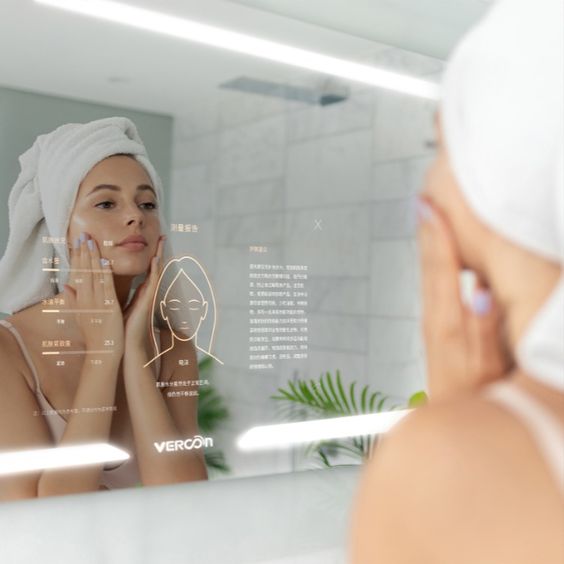
The beauty industry is on the brink of a technological revolution, with artificial intelligence (AI) poised to redefine the landscape. This isn’t just about automating processes or enhancing customer experiences—AI promises to make beauty more personalised, efficient, and effective, setting new standards for luxury in a digital age. But as this transformation unfolds, AI's governance and transparency will be paramount to maintaining consumer trust and driving sustainable growth.
The Rise of ‘Beaut-AI’: Harnessing Data for Innovation
AI’s impact on beauty begins with its unparalleled ability to analyse vast amounts of data, uncover patterns, and generate insights. This is the essence of the ‘Beaut-AI’ trend, where beauty brands leverage information from customer feedback, social media, and market research to identify gaps in the market and create innovative products tailored to specific needs. By understanding what consumers truly want, brands can develop offerings that resonate personally, setting themselves apart in an increasingly crowded market.
One of the most exciting prospects is AI’s role in product development. By analysing social media trends, customer reviews, and environmental data, AI can predict emerging beauty preferences and help brands stay ahead of the curve. This isn’t just about following trends—it’s about setting them and offering consumers products that are not only innovative but also perfectly aligned with their personal preferences.
Personalisation: The Future of Luxury Beauty
The future of luxury beauty lies in hyper-personalisation, and AI is the key to unlocking this potential. Imagine skincare products tailored not just to your skin type, but to your genetic makeup, lifestyle, and even the specific environmental conditions of your location. AI can analyse a myriad of factors—from pollution levels to UV exposure—and recommend products that meet your unique needs, ensuring you always look and feel your best.
Virtual beauty assistants powered by AI will take this a step further, offering personalised advice, tutorials, and product recommendations based on your individual preferences. Augmented reality (AR) technology will allow you to try on products virtually, providing a real-time visualisation that helps you make informed decisions. This level of personalisation will attract consumers to new brands and foster loyalty, as they experience the benefits of products designed specifically for them.
The Ethical Imperative: Transparency and Inclusivity
As AI becomes more integrated into the beauty industry, the ethical implications cannot be ignored. Transparency in AI systems will be crucial for building consumer trust. Brands must disclose how they collect and use data, ensuring that customers are fully aware of how their information is being utilised. This is particularly important in the realm of personalised beauty, where sensitive data such as biometric information may be involved.
Inclusivity will also be a critical factor in the success of AI in beauty. AI algorithms must be trained on diverse datasets to cater to a wide range of beauty needs, preventing biases that could lead to discriminatory outcomes. Brands that embrace the ethical aspects of AI—by prioritising transparency, data protection, and inclusivity—will not only innovate more effectively but also build stronger relationships with their consumers.
TikTok and the Power of AI-Driven Content
As TikTok continues to dominate the social media landscape, beauty brands must find ways to leverage AI to create more engaging and personalised content. The platform’s visually focused, data-driven nature makes it an ideal playground for AI innovations. By analysing user data, AI can identify trends, generate personalised recommendations, and create interactive experiences that resonate with TikTok’s Gen Z audience.
For example, AI could help beauty brands develop content that’s tailored to individual users’ preferences, making each piece of content feel like it was made just for them. This level of personalisation could dramatically increase engagement, driving both brand awareness and sales.
The Future of AI-Driven Beauty
Looking ahead, AI will enable highly tailored beauty experiences based on individual preferences, genetics, environments, and lifestyles. In retail, AI will integrate with physical stores through smart mirrors, interactive displays, and kiosks that offer personalised recommendations and virtual try-ons. AI-driven beauty devices will enhance at-home treatments, offering consumers salon-quality results in the comfort of their own homes.
AI will also revolutionise influencer marketing by creating realistic virtual influencers and tutorials, transforming the way brands connect with their audiences. As sustainability becomes increasingly important, AI will optimise practices in ingredient sourcing, packaging, and waste reduction, helping beauty brands minimise their environmental impact.
But the success of AI in beauty will depend on more than just technological innovation. It will require a commitment to ethical AI governance, with brands prioritising fairness, transparency, and responsible data use. By doing so, they can unlock the full potential of AI, offering consumers personalised, advanced solutions that are both innovative and inclusive.
A Question for You
As AI continues to transform the beauty industry, what aspect of personalised beauty excites you the most? Is it the promise of products tailored to your unique needs, or the convenience of virtual try-ons and personalised recommendations? Let us know your thoughts in the comments!




0 comments